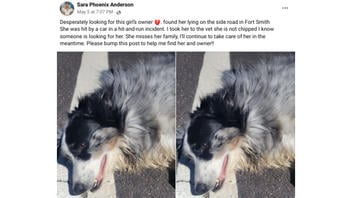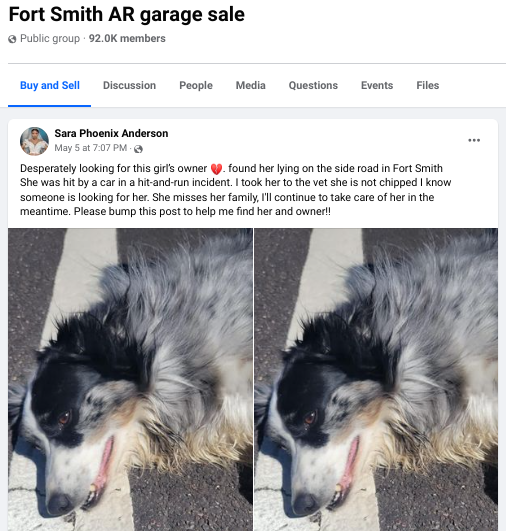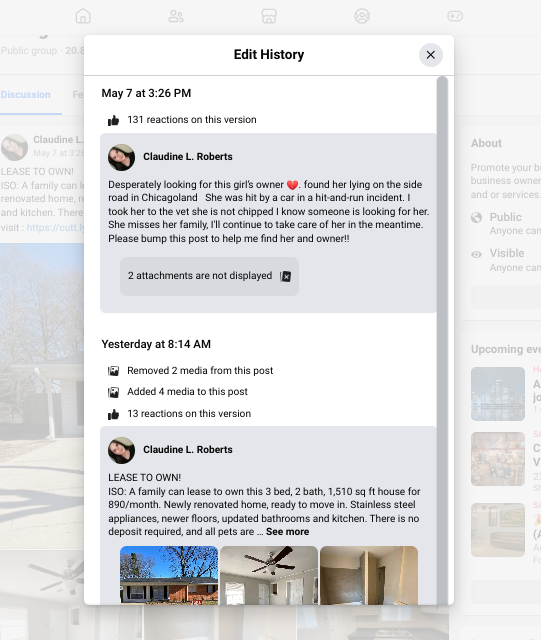
Does a post being shared by various community groups about a dog hurt in a hit-and-run accident describe a real incident? No, that's not true: The post was copied and posted in different social media groups in different states and is a part of a bait-and-switch scheme. These types of posts receive engagement from users based on their attention-getting, alarming nature and then are edited to advertise real estate.
One instance of the hit-and-run dog post (archived here) was published on Facebook in a group called "Fort Smith AR garage sale" on May 5, 2024. The post included pictures of a dog with a caption that read:
Desperately looking for this girl's owner 💔. found her lying on the side road in Fort Smith
She was hit by a car in a hit-and-run incident. I took her to the vet she is not chipped I know someone is looking for her. She misses her family, I'll continue to take care of her in the meantime. Please bump this post to help me find her and owner!!
This is what the post looked like on Facebook at the time of writing:
(Source: Facebook screenshot taken on Thu May 9 19:30:59 2024 UTC)
The hit-and-run dog post
A post (archived here) published on Facebook in a group called "Chicagoland Small Business and Services" on May 7, 2024, previously had the same caption and presumably, the same pictures attached. However, the post was edited to advertise a "lease to own" home.
This picture shows the edit history of the post on Facebook at the time of writing. It started with wording that is identical to the Fort Smith post except for a change in location:
(Source: Facebook screenshot taken on Thu May 9 19:22:03 2024 UTC)
Real estate scam posts
Real estate scam posts are a tactic used on Facebook by those who employ a "bait and switch" content to lure people. A post's creator will pair an alarming or heart-wrenching claim with a compelling image to catch people's attention -- missing children or aging adults, injured animals, injured people in hospital beds and sex trafficking tactics -- and drive engagement.
Once a post has garnered sufficient attention, the content switches to push a deceptive real estate advertisement. The wording and images of these eye-catching posts, typically seen on local Facebook "yard sale" pages, are frequently identical, even when the offered property is located in different cities, regions of the U.S. or countries.
The content switch is clearly documented by a post's edit history, which also notes additions or deletions of content. In some instances time stamps on the posts indicate when the switches were made but on some posts, timestamps don't change even though the content does.
Commonly, such posts use links that lead to landing pages with disclaimers or false promises and contact information requests that can be used to gather personal data, including financial information, from people who follow the trails.
Some links purport to connect people to a U.S. Housing and Urban Development site to help them search for deals on foreclosed homes. Lead Stories found the links lead to new sites that carry disclosures at the bottom of the page that note they are "not affiliated with, endorsed, authorized, or approved by the Federal Government or the US Department of Housing and Urban Development."
Other Lead Stories articles on bait-and-switch posts are here.



















